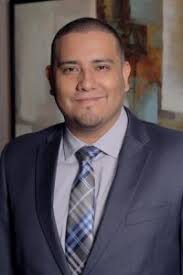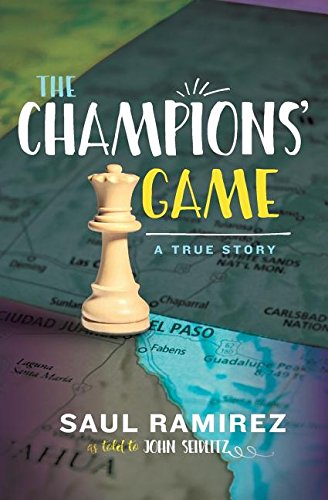It’s been a while since I did a book review for this blog. 1 However, recently I purchased the book The Champions Game: A True Story by Saul Ramirez and John Seidlitz and it turned out to be the worst (chess) book I have ever read.
Since it is my habit to write quick reviews immediately after I read the book, I started writing one. But the book annoyed me and angered me so much that I went on a huge rant, which went beyond the definition of a “quick book review”.
I have therefore decided to devote it a separate post, although it will be far from your typical chess book review.
Hope you will enjoy (?!) it. 2
I ordered The Champions Game: A True Story after Amazon suggested it to me. Since it is a story about how a group of “border kids” from South-Central El Paso went on to compete in the US National Championship and how chess completely transformed the life in a small and poor community, I decided to follow my rule of not thinking twice when buying books and got it without even bothering to check other reviews of Amazon (and other) users. 3
However, even though the story about the impact chess can have on the lives of poor and socially vulnerable kids sounded promising and inspiring, from the very first page the book started sending me very weird vibes.
The story is told from the perspective of one of the authors and the coach of the Henderson chess team, Saul Ramirez. In the first part of the book, we get info on his background and how he got to position to teach and coach at the Henderson school. In the second part, we find out how the Henderson chess team went on to become Texas national champion and compete successfully at the National championship.
There are multiple problems I had with this book, all connected to the main protagonist Saul Ramirez.
Quite frankly, I found his way of presenting the story quite obnoxious. As I was reading the book, I couldn’t avoid a very strong feeling he is a very egoistic, narcissistic and insecure guy trying to brag with his success and present it as a logical consequence of his ability and dedication. 4 From the very beginning of the book I had the feeling the book was more about him than about the poor and social kids on the Henderson chess team.

Why did I get so triggered? Well, there are multiple reasons. First of all Saul Ramirez presents himself as one of those persons without a zero doubt that they deserve success. Zero humility, zero skepticism, zero doubt, zero willingness to admit that he might have ever done something wrong. The way he described how he got the job at Henderson school was just very annoying (and not only because he involved God into it, although it definitely didn’t help him score bonus point with me):
“Then I had just one interview. One opportunity. And I did it. I had gotten it done in one shot. But I had always been a one-shot, never-give-up kind of guy. I had always asked God, “Just give me one opportunity and I’ll do the work.” I just need that one opportunity and I won’t quit until I make it happen “
What are you, god damn Eminem?5 I usually try to avoid such people in real life as plague.
Even so, my bullshit alarm didn’t really start ringing until I got to the part where the kids got on the scene – when he started working as a chess coach and going to the tournaments. First of all, he repeatedly points out everything he does is for the children. That it is all about the children:
“No, it’s not money. If I wanted more money, I would’ve become an engineer or a surgeon or an architect. I’m not looking for money. I’m looking to help kids. It’s about the children.”
On several occasions, he even combined his afore-mentioned narcissism and arrogance with his “care for the children”:
“No. It’s not for chess,” I told her. “Because if I just wanted to play chess and work on becoming a world champion, give me two years of intensive study and I’ll become a world champion. My purpose is the kids. I do this to help build the next generation of people with a purpose.” 6
As Nassim Nicholas Taleb would say:
“If someone says they are not doing it for the money, they are definitely doing it for the money!”
Despite his claims, there was very strong evidence he is NOT doing it for the children. There is an episode in the book after the team scores rather poorly in their first national championship where Saul says he is on the verge of giving this chess coaching thing up. Someone who has a genuine love for the children and the game would never give up because of one bad result.
This leads me to the worst problem of their all – Saul’s relationship with the children he is coaching. The first thing that popped into my mind is how obsessed he is with the winning and how he is not prone to placing enormous pressure on the children (despite claiming on several occasions that they are allowed to have fun). Take this quote for example:
I told them, “When we go to these local tournaments, there will be no more third place. It’s time to win.”
Or this one:
“Guys, we need a big round in the fifth, okay? You really need to step it up. Because there’s nothing like going back to your hometown knowing you’ve lost.”
But don’t you worry guys, he is doing it for the children’s good:
“I pushed them hard to do even better. I was strict, but it was for their own good. “
Now, even though I don’t think the world doesn’t need yet another overambitious parent/coach who turns their kids into insecure overachievers, that is not the end of it. The worst part of everything is that Saul was not prone of manipulating, playing mind games and outright lying to the children if it suited his purposes. For example, in one situation, he decides that one of the members of the team Manny will go to the state championship, but doesn’t tell the boy outright, but decides to “test” him:
“However, I wouldn’t tell René that just yet. Not until I told Manny that the slot was his. But I decided that before I would tell him, I’d make sure he really wanted it. He would have to work for it. “Manny, I might have a spot open for the trip to state, but it’s between you and someone else. If you win this next local tournament, you get to go to state.”
In another situation, he promises the kids all will go to the nationals if they do well at state, even though he knows he will be unable to keep this promise:
“This meant that officially on the roster to go to state were: Pedro Escobar, Eduardo Retana, Leo Gonzalez, Steven Mejia, Lirio Gomez, José Vanegas, Brandon Caballero, Christopher Carmona, and Manny Tejada. I promised all twelve chess club members that if we did well at state and qualified for the nationals, the entire group would go. But it was a promise that would be almost impossible to keep.”
There are many more details that made me question the quality of Ramirez’s pedagogical approach, but I ultimately got a feeling he is a disingenuous person who is just using the children for his personal benefits.
However, at the same time I was asking myself whether I am too harsh. Whether I am judging a person without knowing him or the circumstances in El-Paso. Whether I am reading what I want to read and not what is actually written? Whether someone like Saul Ramirez is exactly what these kids needed in their lives?
In order to check whether it is just me, I decided to check Amazon reviews in the retrospective. And already after the very first one-star review I read, I realized my hunch was correct and that Saul Ramirez is a massive fraud, cheat and liar. Because the review included a link two chesscom articles titled Nationally Recognized Chess Team Under Scrutiny and Chess Coach Could Be Banned For Life From US Chess Federation, about how Henderson chess team used illegal means to achieve their good result at the national championship.
In chess, there is the term “sandbagging” which refers to the intentional lowering of your rating, in order to be eligible to compete in lower rating brackets. Saul Ramirez arranged a match against another school and he instructed his kids to lose their games intentionally, in order to be eligible to compete in U800 and U1000 rating groups for kids under 8 years of age. He was unanimously found guilty, Henderson’s school national titles in those rating groups were invalidated and there were even some people who considered his actions deserve a lifetime ban. 7
In any case, I was relieved and glad that my quick psychological assessment I made throughout while I was reading the book was not off the charts.
This experience was also a useful reminder of how anyone can write anything and publish it these days. 8 It also demonstrated how easy it is to sell the narrative about success, especially if it includes an emotional story such as poor kids changing their lives for better. We always have to be vigilant about people presenting themselves as saviours because more often than not, they turn out to be complete frauds.
I was also angry at myself for buying the book impulsively and not checking the essentials facts about the author. 9
In any case, I wanted to prevent anyone else from committing the same blunder as myself.
Don’t waste your time and money on this book.
- Unfortunately, doing single book reviews is very time-consuming and I have switched to doing compilation posts with brief reviews, such as the one at the end of 2019
- I certainly did.
- A rookie mistake, as we will see
- An “overconfident” patzer, to put it in chess terminology
- Funnily enough, in my Kindle notes, I wrote a picturesque comment here “Fuck off!” I still stand by it!
- Yeah, because it just takes 2 years to become world champion. Max Deutsch, is that you?
- Although I don’t know what was the end-result and if he got actually got banned. If you, dear readers, know, feel free to let me know in the comments.
- That also goes for the author of these lines
- I am not 100% sure, but you might have felt the anger radiating throughout this post! :P

